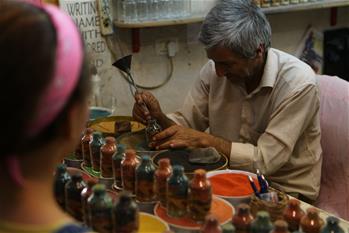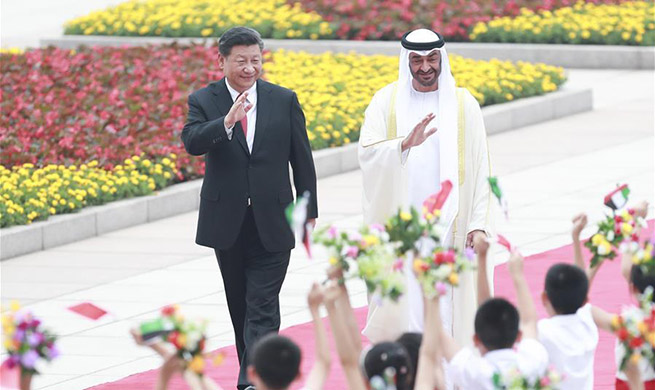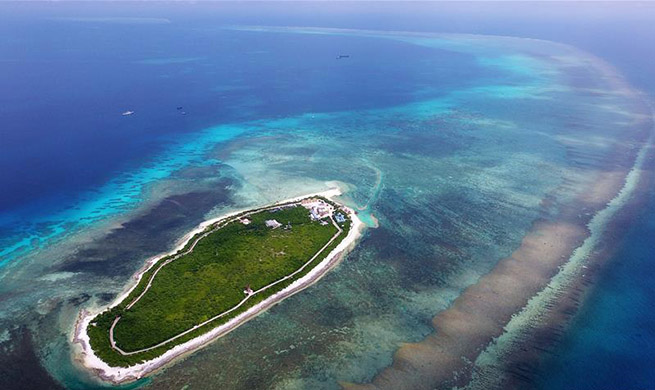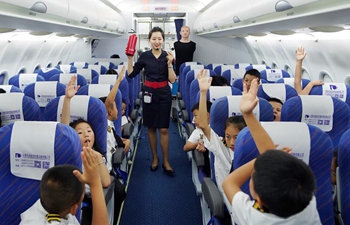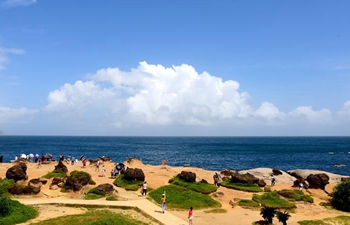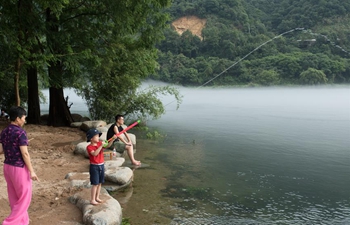KIGALI, July 22 (Xinhua) -- Rwanda has rolled out a policy designed to protect children from online risks and harms as ICT development bring children both benefits and potential risks.
Having come into force in July 2019, the Rwanda Child Online Protection Policy is in response to risks of minors being exposed to unsuitable content on the internet such as indecent images, adult pornography, violence, risks of human trafficking and unwanted sexual advances, according to Ministry of ICT and Innovation of Rwanda.
Rwanda is among the countries with fast-growing ICT development on the continent and the central African country has embraced ICT development across all sectors, Rwandan ICT minister Paula Ingabire told Xinhua recently in a written interview after the policy came in to effect.
Internet penetration in Rwanda currently stands at over 52.1 percent from 7 percent in 2011, and phone penetration has grown to over 80.6 percent currently from 33 percent in 2010, according to the ministry of ICT.
The rapid growth of internet and phone penetration inevitably comes with general risks to children related to cyber bullying, online sexual exploitation, child trafficking, radicalization, blackmail and sexting, said Ingabire, adding that there are moderate cases related to online risks to children that had been registered and investigated before.
According to the policy brief, businesses are required to show procedures and special considerations undertaken to ensure child safety and respect for children's rights as they extend their online services into Rwanda.
It also requires service providers to put in place mechanisms to identify and report upsetting or unsuitable content by having transparent and robust monitoring systems for all online services.
Under the policy, government would establish high level data protection, having specific provisions for children with world-class reporting and takedown mechanisms.
The takedown procedures shall apply to Internet service providers, communication service providers, entertainment and media industry, and deliberate effort shall be made to conduct surveillance of internet to detect content that is harmful to children.
Access to host websites that fail to take down notified harmful or risk content would be legally blocked.
The online policy to protect children is "timely", said Rajat Madhok, chief of Communication, Advocacy and Partnerships at the United Nations Children's Fund (UNICEF) Rwanda.
The protection policy provides guidance on evidence generation as well as preventive and response mechanisms, he told Xinhua, saying the threat of children being exposed to unsuitable content online is real in Rwanda.
Over 45 percent of Rwanda's population is under 18, according to UNICEF.
Such a policy designed to protect them online is a welcome gesture as technology has become a powerful tool in shaping the behavior of children, said Jeannette Ishimwe, a parent of a primary six pupil.
The changing nature of the digital environment requires specific action to protect children, an industry expert of a Rwandan Internet provider spoke on condition of anonymity.
The policy brief estimated it would cost over 1.5 billion Rwandan francs (about 1.7 million U.S. dollars) on the enforcement of the policy over a period of 5 years.
The government would build capacity of law enforcement agencies in issues related to online children protection such as understanding offending behaviors, according to the minister.
